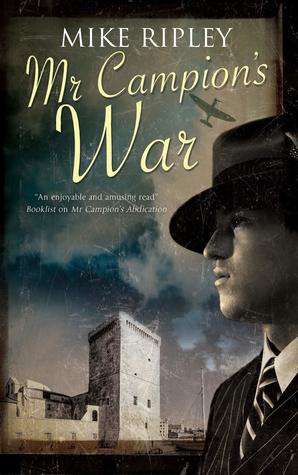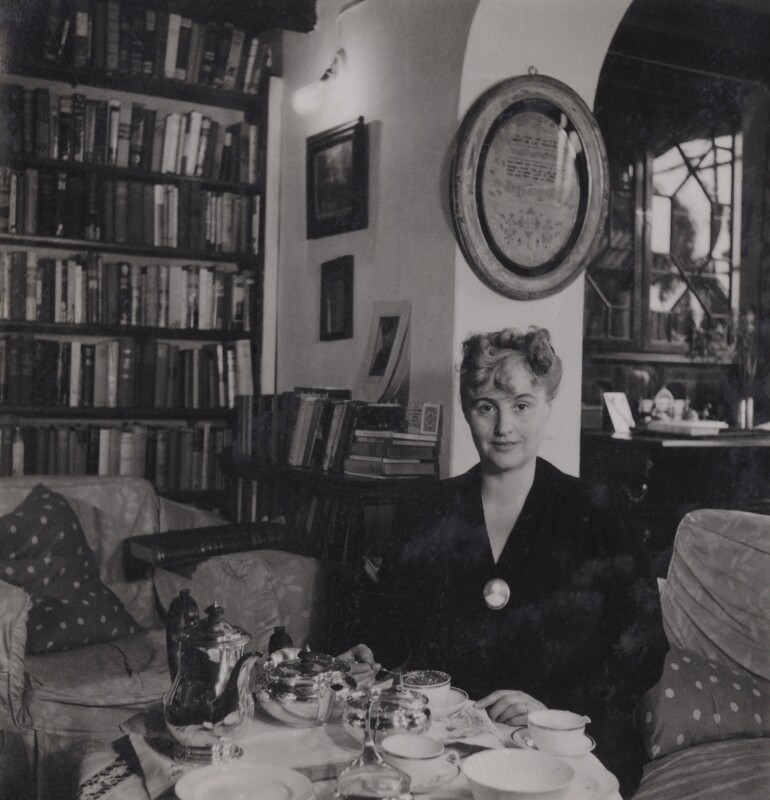Good Reads meta-data is 256 pages, rated 4.0 by 40 litizens.
Genre: krimi

Verdict: Albert, shut up!
While Albert Campion never shuts up, he says very little, and he has never said word one about what he did during the War 1939-1945. He talks and talks, sometimes even in English, but there is little sense in it. Rather it is adolescent wit, word games, bon mots, Latin tags, fragments of misremembered poetry, and so on. To say he is loquacious is just the beginning.
In these pages he is full flight on his seventieth birthday in the Dorchester Hotel on Park Lane in London surrounded by admirers and acolytes, well, family and acquaintances whose tolerance is high. They all know each other, having endured Albert in different configurations over the years. There is Plod from the Yard, too. Lugg the man mountain and bounded retainer is also there to be make a nuisance of himself, and he does.
But among all these Britishers there are, there in England, in 1970, there are….foreigners. They are the Spanish Vidals, mother and daughter, a glacial French woman, a wall flower Frenchman who is quickly forgotten, and an avuncular German, and among them the talk turns to the War. Have these foreigners come all this way to wish Albert a happy birthday? Well, maybe… ‘Ha!’ That’s a laugh. They have come for their foreigner purposes. Or have they?
We have a parallel progression. Albert spills his tale from 1942 in every second chapter, while in the next the guests at the party mix and (mis)match. It takes a scorecard to keep track of everyone at the party, and it turns out that most of them are blue herrings, but not all. The two stories merge when the very large, very sharp knife for cutting the cake disappears, only to reappear in the German.
Quibbles I have a few. No one seems to take much notice of the disappearance of the very sharp knife early in the piece. C’mon, haven’t they read any krimis? This the beginning of an opportunistic crime for sure. Course if they had investigated the case of the missing knife, the story would have ended with that.
Nor does anyone seem much interested in the German once he has been stabbed.
Supernumerary Lugg ambles about being rude and crude, and that’s it. He serves no purpose. His speciality it seems is serving no purpose, but he (dis)attracts a lot of the reader’s attention.
Because the three foreign women have different, married names in 1970 than those in the 1942 telling this reader was never quite who was what and why. Ripley does not emphasise them because he is holding them for the denouement, that much I could see, but still…. Nonetheless I felt cheated.
As usual I found Campion all too much like one of my college roommates who loved the sound of his own voice twenty-four hours at a time. Does Campion ever breathe one might ask, such is the lava flow of words. And it is that bright young thing sort of tosh favoured in the 1920s by insouciant young men who had a right to such absurd irreverence, having survived the trenches. Albert has no such warrant.
What I liked was the representation of life in Vichy France around Mentone and Nice where the story started, though the scene shifted all too soon to Marseille and that big city is like other big cities, whereas Mentone and Nice are different, as much Italian as French with the Alps on one side and the sea on the other. (Plus I have been to both Mentone and Nice.)
The insularity of the British of a certain age and outlook is also nicely done. Well, overdone, but still, shades of Captain Hastings, it is tasty.
The plot about the book-keeper stuck me as farfetched but that is what fiction is.
Nothing competes with J. Robert Janes accounts of life under Vichy in his numerous books, but the key one in this context is ‘Flykiller’ (2002).
Many Krimiologist will remember Margery Allingham well. She penned about twenty novels featuring the supercilious and verbose Albert Campion, who seemingly never got to the point but did somehow. These were set mostly between the Wars, as used to be said. (Readers who do not know which wars are invited at this point to click away, and stay …. away.) As with Agatha Christie and others, her character — the annoying but somehow tolerable Albert Campion — has outlived her. By the legerdemain of a literary executor, since Allingham’s death, he has had further adventures written by Phillip Carter (Allingham’s widower) and he in turn brought the talented Mr Ripley into the fold. This is the fifth title from the Ripley keyboard. The novel is well written and has a nice premise in Vichy. But Campion can be taken only in small doses. Might try one of Ripley’s other krimis. Did so. No sale.
Allingham also wrote ‘The Oaken Heart‘ (1941) when a German invasion was expected any day on the Essex coast and she and her neighbours would be on the front line.
 Here she is at home about that time.
Here she is at home about that time.
That will be on my reading list.
Skip to content
